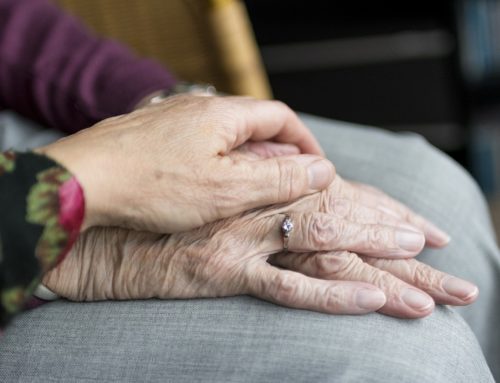Dementia can affect communication in two major ways. It affects the way the person with dementia interprets information, and it affects the way the person expresses themselves.
Nicole Smith, a Registered nurse and gerontology master’s student with a 10-year career in aged care management, shares her experience in positive communication.
“One of the main challenges is, many people living with a diagnosis of dementia don’t have the ability to express what they’re actually thinking – and we assume they’re not able to understand,” she said.
“You don’t need to dumb down your conversation. You don’t need to talk extra loudly, you just have to communicate how you would with any other person, and take time to look for the answers.”
A career working in a residential care home, Nicole believes meaningful engagement with a person living with a diagnosis of dementia involves understanding that the words may be hard to find due to the person’s aphasia, but they’re still an emotional being who needs your patience, understanding and social connection, Looking for opportunities for meaningful engagement. Much of Nicole’s resident-centred care approach is influenced by Dr David Sheard, founder of Dementia Care Matters, a culture change approach to nursing homes.
To help conceptualize the term ‘meaningful engagement’, Nicole uses an example of where a woman was wondering through the dining area of a residential home.
In a recent resident review, Nicole noted that “In a 10-minute period, there were at least nine missed opportunities for meaningful engagement. The person was completely ignored by staff and residents, and her “so called” behaviours normalised,” she explained. Nicole could sense that the woman knew she was being ostracized by her peers.
Connection is key.
Instead of taking a transactional approach to people living with a diagnosis of dementia – responding to unmet needs such as physical and verbal aggression – Nicole advocates for finding a connection.
“When I visit a resident’s room, I say, ‘Isn’t it a beautiful day or did you see the football last night?”
Creating a social profile
Nicole recommends doing a thorough social profile when a resident moves in, and suggests updating it on a regular basis for it to be of success. This important information should be shared with carers and relevant staff.
“If you know Mary moved in and she loves cats, and grew apples in an orchard farm her whole life, you can start talking about cats, you can bring pictures of cats, or you can talk about apples and how they are grown,” she said. “You then have a starting point to building a relationship.”
This is the key to meaningful engagement.
Nicole Smith is a registered nurse and gerontology master’s student with a 10-year career in aged care management. She currently works as an aged care advisor to a busy general practice, supporting facilities and GPs to provide resident-focused care and improve the lives and rights of our elders. Read more about Nicole on LinkedIn
Author :-
Luisa Capezio, CEO and aged care navigator at Independent Care Solutions. At Independent Care Solutions Pty Ltd it is our job to help individuals and families navigate the aged care system to find the best solution for loved ones who need support to stay at home or are ready to take the next step into residential aged care. www.icares.com.au 






